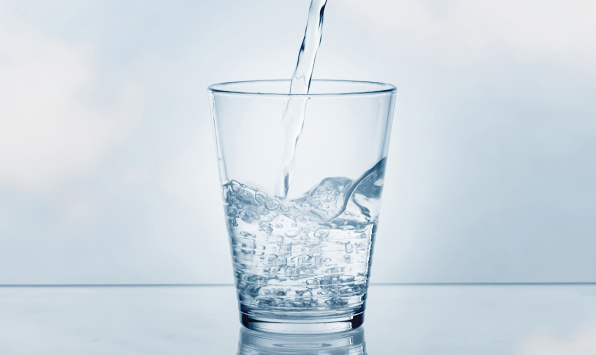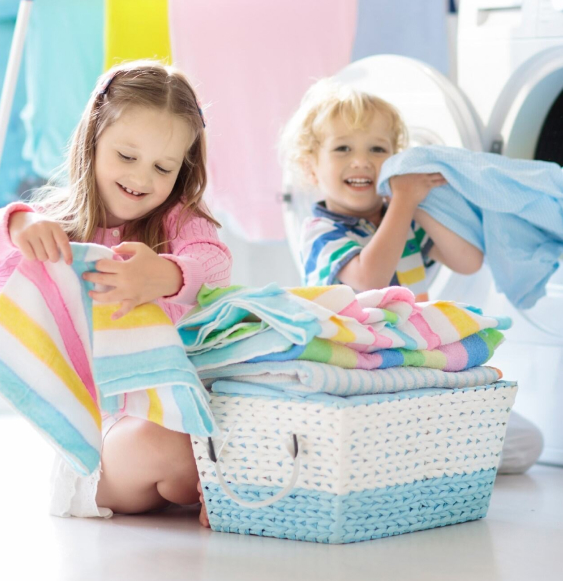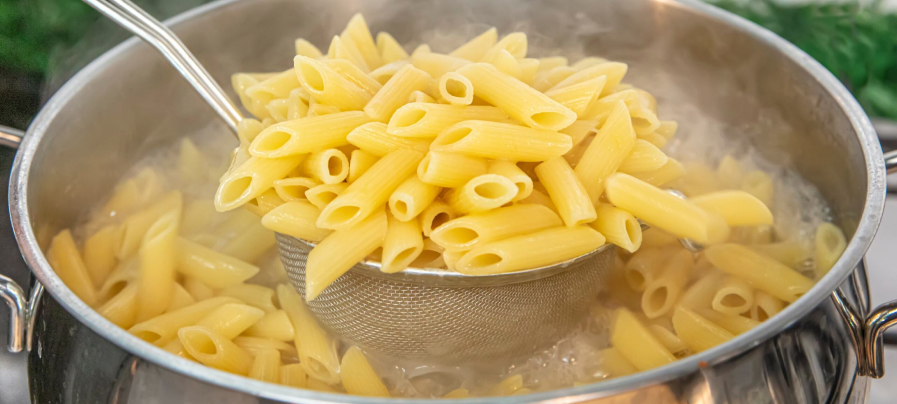Nobody enjoys stepping out of a rejuvenating bath, only to find their skin feeling dry and their hair lacking its usual shine. Or perhaps you’re tired of constantly battling limescale buildup on your taps, showerhead and washing machine. These everyday annoyances, along with many others, are often the result of hard water, a common issue many homeowners face. Fortunately, there is a simple solution that could transform your water, making it kinder to your skin, your home, and your wallet… a water softener. If you are looking to improve your water quality and overall home experience, this small device can make a big difference. Read on to find out all the details and get all your questions answered.
The Benefits Of Installing A Water Softener For Your Bathtub And Home

What Is Meant By Hard and Soft Water?
All water is naturally soft when it falls from the sky and will only gain hardness when it comes into contact with the ground. For example, if rainwater lands on an area of porous limestone, the water will collect any dissolved minerals like calcium and magnesium, as it penetrates through and over it, gaining its hardness. Water falling on non-porous rock areas, cannot penetrate the ground and therefore, will not pick up any minerals, hence why it remains softer.
While they may sound harmless, the high traces of dissolved minerals contained in every drop of hard water can cause a lot of trouble in your home, from the annoying chalky residue left on your dishes and stiff towels, to scaley taps and kettles. The calcium and magnesium deposits can also create limescale which can be very damaging to the internal heating and plumbing systems of our homes, as well as affecting how efficiently cleaning products can do their job.
Soft water, on the other hand, is free of these mineral passengers, making the water gentler on your skin, your appliances, and even your treasured morning cuppa. Households with water softeners are also capable of saving a decent amount of money throughout the year too – we’ll look further into the benefits later in this article.
Do I Need To Soften My Water?
There is no requirement to soften your water, it’s a personal choice. Deciding whether you need to invest in a water softener or not will largely depend on where you live, how much hard water affects your home and lifestyle, and the type of rock you have underneath your feet! According to water purity experts, Aqua Cure, the South East of England and London water hardness levels are predominantly high and as this is the area where we predominantly serve as professional plumbers, we are in total agreement. Scotland, Ireland and Wales tend to have mainly soft water as you can see in Aqua Cure’s handy water hardness map.
How Do Water Softeners Work?
Water softeners tackle the root cause of hard water: the excess minerals, predominantly calcium and magnesium ions, that create all those frustrating problems and damaging risks in your home. A water softener will remove these minerals through a process known as ion exchange (hence why home water softeners are often known as iron exchange units).
Don’t worry, we won’t bore you with the science, but here is how it works:
As hard water flows into the softener, it passes through a bed of tiny resin beads. These beads are specially designed to attract and hold onto the calcium and magnesium ions in the water, exchanging them for sodium or potassium ions, which are much gentler on your home and appliances. The result is soft water, free of the minerals that cause those pesky hard water issues.
Over time, the resin beads become saturated with the captured minerals and need to be “recharged.” This is done through a regeneration process, where a brine solution (saltwater) flushes through the resin, washing away the accumulated calcium and magnesium and recharging the beads with fresh sodium or potassium ions. This cycle repeats, ensuring a continuous supply of soft water to your home, protecting everything from your pipes to your skin. Clever, eh?
Water Softener Benefits
Now you understand what a water softener is and how it works, and you have established if you need/want one, you’ll probably be keen to learn what exactly you’ll get out of investing in one? Allow us enlighten you…
Greater Energy Efficiency In Your Home
Don’t underestimate the disruption that hard water can cause on your water heating system due to the build-up of limescale in the pipes and components. We often find that the central heating blockages and boiler damages we investigate are caused by exactly this problem. As limescale and debris builds up in the system over time it adds another layer of insulation that forbids the transfer of heat into the water and therefore reducing the efficiency of your boiler. If your boiler isn’t working as well as it should, you’ll be paying the same amount of money for less heat gain in your home. Having soft water running through your system will eventually dissolve away any lingering scale and prevent the issue from happening again. You will be nice and warm with improved energy efficiency and have more money lining your pockets.
Appliance Protection And Performance Longevity
When your water is softened, your appliances like dishwashers and washing machines operate more efficiently, which means they don’t need as many harsh cleaners or descaling agents to stay in top shape. Not only does this reduce your household’s chemical footprint, but it also extends the life of your appliances—saving you even more money on costly repairs and buying new appliances earlier than you need, as well as reducing waste.
Save Money On Cleaning Products And Go Green
If you’ve ever struggled to rid soap scum from your bathtub or noticed that your washing detergent doesn’t last as long as it used to, the mineral deposits found in your hard water are likely to blame. It is mainly the calcium and magnesium minerals that make it difficult for soaps and detergents to lather properly. Which simply means that you will end up using more cleaning products to get the job done. A water softener however, will ensure the problem minerals are removed to allow your cleaning product to do their job with much less effort. A cleaner home, less elbow grease, and more money in the bank because you are buying fewer cleaning supplies, can only be a good thing!
Using a water softener is a win for the environment too. Think about it: the less washing up liquid, laundry detergent, bathroom and kitchen cleaner, toilet cleaner and all the other products we tend to use daily, the fewer chemicals you’re washing down the drainpipe. These chemicals, when they enter our water systems, can harm aquatic life and contribute to pollution.
Don’t forget about the impact on plastic waste either. With fewer cleaning products to buy, you’re cutting down on the number of plastic bottles that end up in landfills or, worse, our oceans. This small change can significantly reduce your household’s carbon footprint, as fewer resources are used to produce, transport, and dispose of these products. Installing a water softener isn’t just about softer water—it’s about making smarter, more sustainable choices that benefit both your home and the planet.
Improved Hair And Skin Health And Condition
Installing a water softener can do wonders for your hair and skin, transforming not just how you look but also how you feel. You may have noticed that your usual dry, frizzy or weighed down hair feels differently when you go on holiday to a soft water area. The high mineral content in hard water can cling to your hair, making it difficult for shampoos and conditioners to work effectively. This build-up can leave your hair looking dull, lifeless, and more prone to breakage. Whereas a water softener will allow your hair to fully absorb the moisture and nutrients from your hair care products. You will soon reap the benefits of softer, shinier, and more manageable hair that feels as good as it looks.
The benefits of soft water extend to your skin as well. Hard water can be harsh on your skin, stripping away its natural oils and leaving it dry, itchy, and irritated. For those who suffer from skin conditions like eczema or psoriasis, the effects can be even harsher, exacerbating symptoms and making flare-ups more frequent. Softened water, on the other hand, is much gentler on the skin. It helps maintain your skin’s natural moisture balance, reducing dryness and irritation. This can lead to smoother, more hydrated skin, and for those with sensitive skin or chronic conditions, a significant improvement in comfort and appearance.
Plus, you could also reduce your reliance on heavy lotions, creams, and treatments meant to combat the dryness caused by hard water. With soft water, your skin and hair care products can perform as they are intended, meaning you’ll likely need less product to achieve the same—or even better—results. Not only does this save you money, but it also simplifies your beauty routine, freeing up time and energy for other things.
Enjoy Tastier Food And Drink
Softening your water and ridding all the added minerals may even mean that you enjoy the flavour of your food and drinks much more. It is the minerals found in hard water which gives it that subtle, sometimes unpleasant, aftertaste that can ruin the true flavours of the lovely ingredients you are keen to enjoy.
Even your coffee and tea can be impacted as they are drinks that are highly sensitive to the quality of water used in their preparation. Hard water can make coffee taste slightly bitter or dull, and tea can lack its fully brewed flavours. When you switch to softened water, you’ll probably notice a more satisfying flavour, as the removal of excess minerals helps extract the full range of tastes from your coffee grounds or tea leaves.
The same can be said for your cooking as well. Using softened water to boil veg or pasta will mean it is not absorbing any unwanted tastes or odours. Your pasta will be more evenly cooked, and your veggies will retain their natural flavours. Your dinner will not only taste better, but it will look better too – soups, stews, and sauces made with softened water will appear more vibrant and flavourful, as the clean water helps in properly blending and enhancing the ingredients.
If you bake frequently, softened water can contribute to better results. Hard water can sometimes affect the consistency of dough or batter, leading to unpredictable results. Soften water ensures a smoother and more consistent texture, improving the overall quality of your baked goods. You might find that your cakes rise better, and biscuits come out more evenly baked, all thanks to the improved water quality. The “soggy bottom cake” will become a thing of the past!
The list of benefits associated with installing a water softener goes on, including streak free car washes, and windows, better quality baths and showers, and cleaner clothes and dishes. We hope the benefits we have covered have given you a good idea on why, if you live in a hard water area, you may benefit from investing in one.
If you are concerned about living in a hard water area, you’ve noticed your boiler isn’t working as efficiently as it could be, or there is lots of scale build up around your appliances and you would like some professional advice. You know where we are. The team at Happy Dog Plumbing would be happy to take a look at any plumbing or heating concern you have and see where we can help. Contact us at your convenience.


